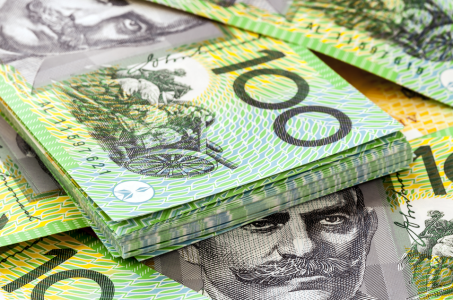Do you know about the 'shady' fee for using cash at Australia Post?
Amid a world where digital transactions are slowly becoming the norm, the charm and reliability of cash remain significant for many, especially for the older generation.
However, a recent incident at Australia Post has sparked outrage among Australians, particularly those wary of the nation's shift towards a cashless society.
A Brisbane woman, Gerrie Hoogland, took to social media to express her disbelief and anger after a friend was charged an additional fee for using cash to pay at an Australia Post outlet.
The friend, who had attempted to pay an $82 bill with cash, was informed that a $2.20 fee would be applied for the transaction.
Gerrie wrote in her post: ‘He refused to pay it after telling them cash is legal tender, and then he left without paying the bill at all.’
This incident has ignited a firestorm of criticism online, with many users condemning Australia Post for what they perceive as a 'shady' and 'disgraceful' practice.
The backlash was swift and severe, with accusations of a 'scam' being thrown around, reflecting the broader concerns of Aussies about the decline in the use of cash and the implications of a potentially cashless society.
It is understood that the fee in question was not imposed by Australia Post but by the biller.
The additional charge is part of a bill-payment fee for services paid in person using Post Billpay, a facility offered by Australia Post for paying various bills.
The decision to pass this fee onto the customer is made by the organisation issuing the bill, not by Australia Post.
‘Some billers charge a bill-payment fee for bills paid in person,’ AusPost stated.
They also advised customers to contact the bill issuer directly to understand the specifics of these charges.
Major phone companies such as Optus, Vodafone, and Telstra have been known to apply a 'non-electronic-payment fee' for bills paid at Australia Post shops, with Telstra charging a $2.50 fee regardless of the payment method.
Telstra explained: ‘Australia Post charges the utility for processing the payment, and it is common for companies to pass this onto the customer.’
The incident has highlighted a broader trend in society, with the country potentially moving towards being 'technically cashless' within the next three years.
Cards and digital payments now account for three-quarters of small purchases, a significant increase from just over half of all in-person transactions under $10 in 2019.
The pandemic has accelerated this shift, with many opting for contactless payments as a health precaution.
While the convenience of digital payments is undeniable, the move towards a cashless society raises concerns about excluding those who rely on cash, including many seniors who may not be as comfortable with technology or prefer the control and privacy cash provides.
Financial experts also warned that this transition could make thousands worse off, highlighting the need for a balanced approach that accommodates all members of society.

What's your take on this, members? Have you encountered similar fees when paying in cash? Share your experiences in the comments below.
However, a recent incident at Australia Post has sparked outrage among Australians, particularly those wary of the nation's shift towards a cashless society.
A Brisbane woman, Gerrie Hoogland, took to social media to express her disbelief and anger after a friend was charged an additional fee for using cash to pay at an Australia Post outlet.
The friend, who had attempted to pay an $82 bill with cash, was informed that a $2.20 fee would be applied for the transaction.
Gerrie wrote in her post: ‘He refused to pay it after telling them cash is legal tender, and then he left without paying the bill at all.’
This incident has ignited a firestorm of criticism online, with many users condemning Australia Post for what they perceive as a 'shady' and 'disgraceful' practice.
The backlash was swift and severe, with accusations of a 'scam' being thrown around, reflecting the broader concerns of Aussies about the decline in the use of cash and the implications of a potentially cashless society.
It is understood that the fee in question was not imposed by Australia Post but by the biller.
The additional charge is part of a bill-payment fee for services paid in person using Post Billpay, a facility offered by Australia Post for paying various bills.
The decision to pass this fee onto the customer is made by the organisation issuing the bill, not by Australia Post.
‘Some billers charge a bill-payment fee for bills paid in person,’ AusPost stated.
They also advised customers to contact the bill issuer directly to understand the specifics of these charges.
Major phone companies such as Optus, Vodafone, and Telstra have been known to apply a 'non-electronic-payment fee' for bills paid at Australia Post shops, with Telstra charging a $2.50 fee regardless of the payment method.
Telstra explained: ‘Australia Post charges the utility for processing the payment, and it is common for companies to pass this onto the customer.’
The incident has highlighted a broader trend in society, with the country potentially moving towards being 'technically cashless' within the next three years.
Cards and digital payments now account for three-quarters of small purchases, a significant increase from just over half of all in-person transactions under $10 in 2019.
The pandemic has accelerated this shift, with many opting for contactless payments as a health precaution.
While the convenience of digital payments is undeniable, the move towards a cashless society raises concerns about excluding those who rely on cash, including many seniors who may not be as comfortable with technology or prefer the control and privacy cash provides.
Financial experts also warned that this transition could make thousands worse off, highlighting the need for a balanced approach that accommodates all members of society.
Key Takeaways
- A woman expressed outrage after her friend was purportedly charged an extra fee for using cash at Australia Post.
- Social media users criticised the fee, with some branding it as a 'scam' and others concerned about the move towards a cashless society.
- It was clarified that the additional charge for paying bills in person is set by the individual biller and not by Australia Post.
- Telstra, among other companies, charges a 'non-electronic-payment fee' for bills paid in person, which is applied whether payment is made by cash or card.
What's your take on this, members? Have you encountered similar fees when paying in cash? Share your experiences in the comments below.








